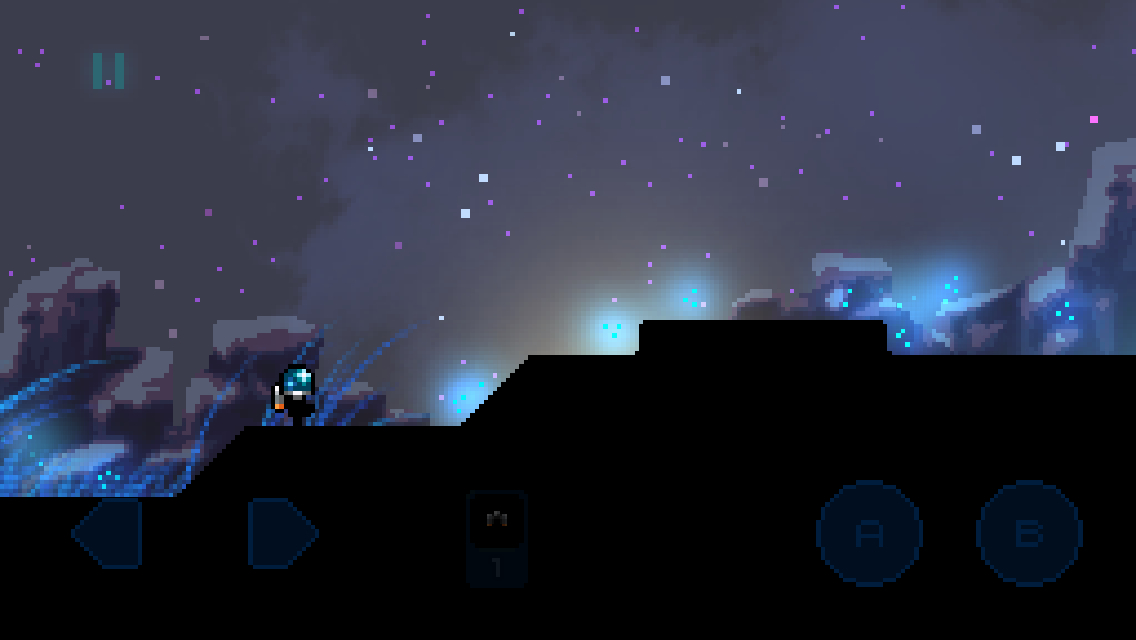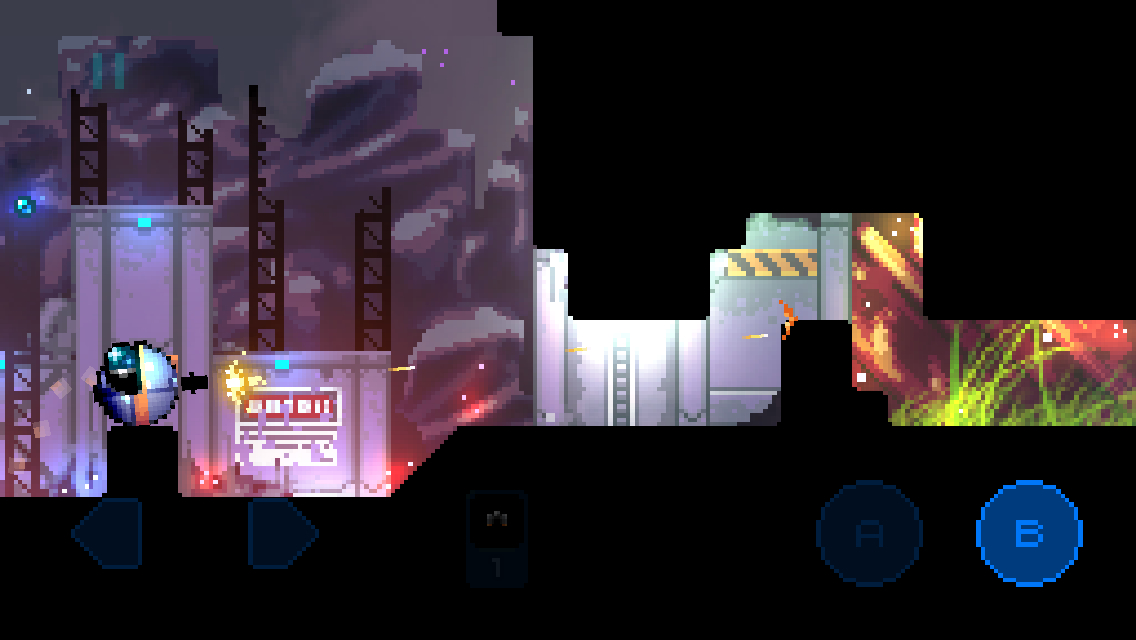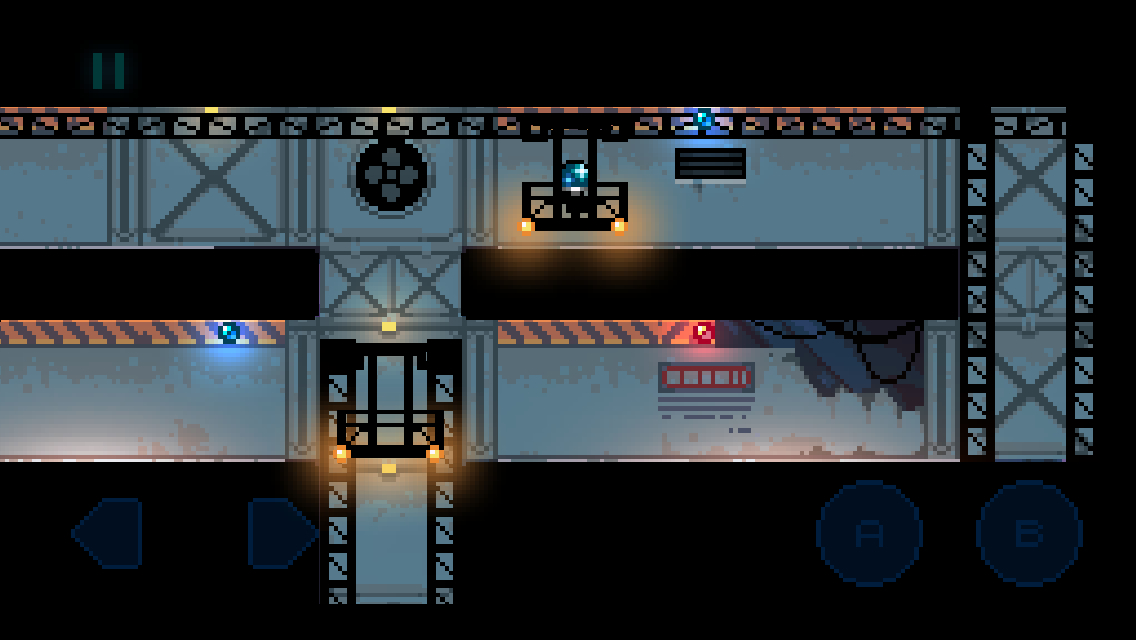 It’s a frequently-visited topic throughout the history of the hobby, but the topic of the length of games (or the lack thereof) has been coming up a lot recently among mobile gaming fans. Faced with a market that that is often frighteningly resistant to handing over more than a few dollars in lump sums, many developers who want to build a traditional game with a beginning and ending, free of IAP consumables and other monetization techniques, are faced with a pretty hard economic reality. The answer to that problem is usually to scope the game’s content according to some very meager budgets, leading to some great games that don’t take all that long to play through. This was a very hot discussion when it came to Monument Valley ($3.99), and it may well be the same for those who pick up Space Expedition: Classic Adventure (Free).
It’s a frequently-visited topic throughout the history of the hobby, but the topic of the length of games (or the lack thereof) has been coming up a lot recently among mobile gaming fans. Faced with a market that that is often frighteningly resistant to handing over more than a few dollars in lump sums, many developers who want to build a traditional game with a beginning and ending, free of IAP consumables and other monetization techniques, are faced with a pretty hard economic reality. The answer to that problem is usually to scope the game’s content according to some very meager budgets, leading to some great games that don’t take all that long to play through. This was a very hot discussion when it came to Monument Valley ($3.99), and it may well be the same for those who pick up Space Expedition: Classic Adventure (Free).
Here’s the thing, though: I don’t think this discussion is really about length. Some of the best games ever made are surprisingly short, and even big AAA console productions often last only a few hours, give or take. I’m not the only one to suggest it, but it’s not the length that matters, but rather how satisfying the game contained in there is. I’ve played games that were 20 hours long that would have been far better at half the length, and games that are 100 hours long that I thought could have used a little more on top. One of my favorite mobile games this year is Studio Pixel’s wonderful Kero Blaster ($2.99), a game that I feel gives a meaty, enjoyable chunk of gameplay in a relatively short runtime. I also really enjoyed Monument Valley, which focuses heavily on the experience as opposed to the mechanics, taking us on a pleasant tour that also wraps up in fairly short order.
Somewhere between those two, there’s Space Expedition. This game is perhaps shorter than either of the aforementioned, and it never really makes a decision between story and gameplay as its crux. It does both fairly well, calling to mind Nintendo’s brilliant Metroid series in both its atmospheric feeling of isolation and the satisfying feel of the main character’s controls. I’m throwing around a lot of big names here, and in some respects, Space Expedition can stand beside them with its head held high. The big difference here for me is that I wasn’t terribly satisfied by Space Expedition. Now, to be fair, I wasn’t completely satisfied with Monument Valley and Kero Blaster in the sense that I could have easily consumed twice as much as they offered and still been game for more, but it’s not exactly the same thing here. Rather, Space Expedition feels like the prologue to an absolutely incredible game, and if we never get that game, a little part of me will always be sad.
Forty-five minutes is not a very large span of time. Space Expedition can’t quite choose between using this time to develop its mechanics or its story, splitting fairly evenly between the two. It offers up several exciting action sequences, and does a great job of establishing the mood of its lonely little slice of the universe. And then, almost as soon as it starts, it’s over, leaving us with the agonizing words “to be continued…". I hope so, Space Expedition, I sure hope so. It’s basically nine stages of side-scrolling action and exploration, some of which last mere minutes. I’d be a lot more down on the game if it weren’t for the simple fact that each one of these stages is so stunningly well-designed, from both a gameplay and atmospheric point of view. You’re doing something a little different in each one of them. Interestingly, your character reaches their peak power very early on, getting a major downgrade about halfway through the game, a move that forces you to quickly relearn the rules of play to an extent.
The game offers up two different final stages, depending on whether or not you were able to collect all of the hidden gems found throughout the game. It lends the game some replay value in that it’s certainly worth playing through at least twice to see the other option, since the two possible stages are quite different. Beyond that, I could certainly see coming back to this now and then for a quick playthrough just to soak it all in again. The game does inform you how long you took and how many times you died when you complete each playthrough, but you’ll have to constantly delete the app and download it again if you want to try speed or low-death runs. It’s just about worth the hassle, though, because this is definitely one of those games where you can shave off a few seconds every time you play it again.
Controlling your character feels right. The game uses virtual buttons, with left and right arrows to move around, a jump button, and a multipurpose action button used for flipping switches, picking up objects, and diving. You’ll come across a few objects in your journey, easily selected by tapping their icons. Your character gets a jetpack almost immediately, giving you a comforting safety net while you get used to the jumping controls. Notably, you almost never have any means of offense, which avoids the tricky problem of aiming a ranged weapon while simultaneously pushing you into thinking your way out of problems instead of gunning your way out. Well, there is this one time, but the exception only proves the rule, right?
If you enjoy sprite-based graphics, you’ll be pretty happy with the presentation in Space Expedition. The backgrounds have quite a bit of detail to them, and I was kind of surprised by how much variety there was from stage to stage. There’s very little reused, which helps the game feel a bit bigger than it actually is, and some of it is quite beautiful. It has a kind of grungy SEGA Genesis-style aesthetic to it that fits the “used future" setting of the game quite nicely. The music is fairly subdued, but it does its job well in helping to evoke the lonely feeling that permeates the best science fiction stories. There are only four achievements to earn in the game, with two of them being progress-related, one an actual challenge, and the last a badge for those who can’t quite get the swing of things.
I can’t imagine how much work it might be to make a full experience on par with the quality found in the short snippet Space Expedition represents, but I do know that I really want to see it come about. This is a great slice of game from top to bottom, but it truly feels like only a slice. I think if you come into the game fully aware of that, you’re not going to regret your purchase, since there are plenty of beautiful things going on here from a design perspective to justify your three dollars. I can’t help but think even the most satisfied player is going to be left with a half-empty belly by the end, however. Here’s hoping this is one of those rare promises to continue that actually does.


